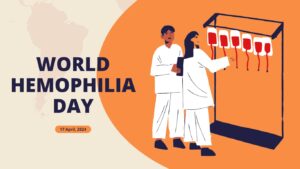-
On Alzheimer’s awareness month, we try to speak of the unspoken.
-
Every 3 seconds, 1 person in the world develops dementia.
-
Alzheimer’s kills more people than breast cancer and prostate cancer put together.
-
Alzheimer’s has been declared as the 7th leading cause of death worldwide.
-
Alzheimer’s is also the only disease amongst the top 10 causes of death worldwide that cannot be prevented or cured.
In spite of all this, Alzheimer’s remains as one of the most ignored and neglected conditions.
What understanding do we have about dementia and Alzheimer’s? Are they the same
condition? Can they be used interchangeably? The answer is No. Dementia is an umbrella term
for decline in cognitive abilities that includes memory loss and thinking abilities. It is a clinical
syndrome caused by variety of diseases. The cause of brain cell death and/or its location in the
brain determines what disease is behind dementia.
While on the other hand, Alzheimer’s is the leading cause of dementia. So it is a type of
dementia; the most common type. It is a progressive brain disorder which cannot be reversed or
cured. Although there are symptomatic treatment options and supportive measures available.
The exact cause of Alzheimer’s remains to be demystified.
So is every individual at an equal risk of developing Alzheimer’s? What will be the first signs of
the disease? How does Alzheimer’s lead to death? And will I too develop it if someone from my
family had it?
Let’s start answering all the questions, with one astonishing fact; Women are more likely to
develop Alzheimer’s than men. According to a recent study conducted by Harvard University,
two third of the population suffering from Alzheimer’s is feminine. Which means the disease is
almost twice as common in women compared to men. But why is that so? The most obvious
answer is, life expectancy. The greatest risk factor of Alzheimer’s is age, and women tend to live
longer than men. So the longer you live, the greater the threat of developing Alzheimer’s. That
also answers to the question if everyone is at an equal threat of Alzheimer’s.
Although the early warning signs and symptoms of Alzheimer’s is very personal, listing the
commonest ones… Forgetting important dates or events, asking the same questions over and
over, and increasingly needing to rely on memory aids (e.g., reminder notes or electronic
devices) or family members for things they used to handle on their own. Sometimes forgetting
names or appointments but recollecting them later on. But again, if I was never good with
names and not remembering names at 60 will not be considered as a warning sign. Also,
Alzheimer’s and dementia have a very strong genetic pre-disposition.
Death due to Alzheimer’s is mostly due to, what we call as aspiration pneumonia. When food or
liquid goes down to the windpipe instead of the foodpipe causing damage or infection in the
lungs that results in pneumonia. Apart from this, Alzheimer’s causes infections in general,
mostly due to malnutrition, dehydration, poor sanitary conditions, and bedsores leading to
sepsis.
How exactly should we take care of someone with Alzheimer’s. The answer to this is very
simple and logical. Acceptance is the first and the most important key; accept that your loved
one or whoever you are taking care of is suffering from a progressive condition which means
that things will just worsen with time. Be patient enough when routine tasks take longer
durations, be compassionate enough to involve them in the day to day activities and
discussions. Support them whenever and wherever required. Each person will develop
symptoms and progression differently, so tailor your help accordingly.
No definite measure will assure that you won’t develop Alzheimer’s or dementia, but studies
have proven that maintaining a healthy lifestyle, exercising your brain enough through puzzles
or Sudoku , having a proper sleep-wake cycle can help live a longer and healthy life.
-Dr. Aishwarya Nair








